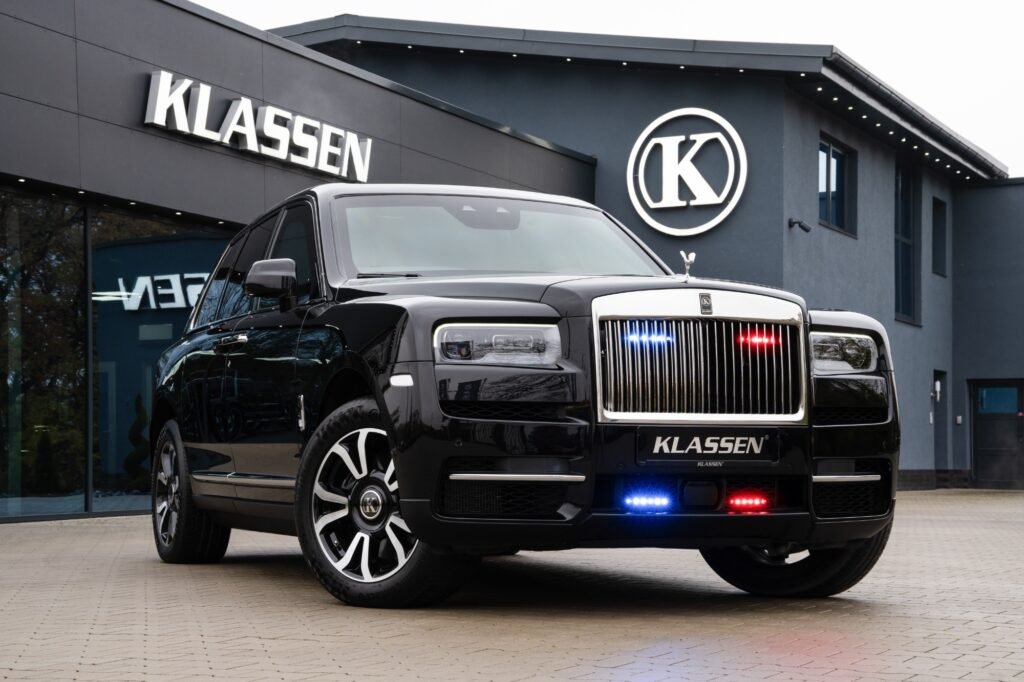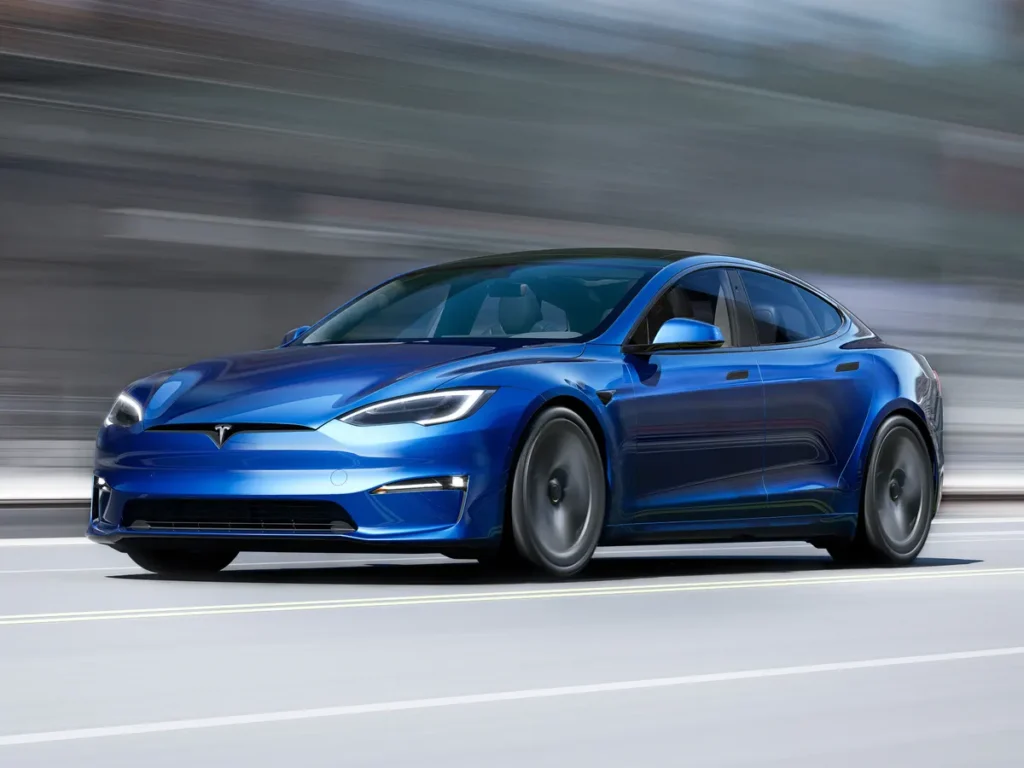Analyze the integration of sustainable practices and materials in luxury car design, exploring the shift towards eco-friendly luxury vehicles.
KEY TAKEAWAYS
- Luxury car brands are increasingly recognizing the importance of sustainability in their design and manufacturing processes.
- Sustainable materials and manufacturing processes play a vital role in reducing the environmental impact of luxury car production.
- The adoption of innovative technologies, such as electric and hybrid powertrains, is transforming the luxury car industry towards a more sustainable future.
In the ever-evolving world of automotive engineering, one phrase has gained significant momentum: sustainability. With increasing concerns about climate change and environmental impact, luxury car brands are stepping up their game and embracing sustainability as a fundamental aspect of their design philosophy. This article delves into the captivating realm where sustainability and luxury car design intersect, exploring the pivotal role sustainability plays in shaping the future of high-end automobiles.
Gone are the days when luxury cars were synonymous with excess and disregard for the environment. Today, forward-thinking luxury car manufacturers are redefining the industry by prioritizing sustainable practices that go hand in hand with opulence and performance. From the choice of materials to the manufacturing processes and technological innovations, sustainability is at the forefront of their design considerations.
The article will explore how sustainability initiatives are reshaping the landscape, discover the innovative materials and manufacturing processes being employed, and delve into real-world scenarios where luxury car brands are leading the charge toward a greener future
The Shift towards Sustainable Luxury Car Design
Environmental Impact of Traditional Luxury Car Manufacturing
Luxury car manufacturing, traditionally associated with opulence and extravagance, has left a significant environmental footprint. The production processes involved in crafting these high-end vehicles have often contributed to pollution, resource depletion, and carbon emissions. From the extraction of raw materials to energy-intensive manufacturing techniques, luxury cars have had a substantial impact on the planet.
However, in recent years, the tide has been turning. Luxury car brands are recognizing the urgent need to address these environmental concerns and are taking bold steps toward sustainability. They are acknowledging their responsibility to reduce their ecological footprint and actively seeking ways to minimize negative impacts associated with traditional manufacturing practices.
Changing Consumer Preferences and Market Demand for Sustainable Luxury Cars
Consumer preferences and market demand have played a crucial role in driving the shift toward sustainable luxury car design. Today’s consumers, particularly the younger generation, are more environmentally conscious and prioritize sustainable choices. They are increasingly demanding luxury vehicles that align with their values of environmental stewardship and social responsibility.
Luxury car brands have taken note of this evolving consumer mindset and are responding accordingly. They understand that sustainability has become a vital factor influencing purchasing decisions. As a result, luxury car manufacturers are investing in sustainable practices to meet the rising demand for eco-friendly and socially responsible vehicles.
Adoption of Sustainability Practices by Luxury Car Brands
To meet the growing demand for sustainable luxury cars, leading brands have embraced sustainability practices throughout their operations. These brands are integrating sustainability into their core values, reimagining their design processes, and revolutionizing their manufacturing techniques.
Luxury car manufacturers are actively exploring alternative materials that reduce their reliance on non-renewable resources. They are incorporating recycled and upcycled materials, exploring bio-based options, and utilizing sustainable alternatives to traditional leather and plastics. By doing so, they are reducing the environmental impact associated with material sourcing and manufacturing.
Furthermore, luxury car brands are adopting sustainable manufacturing processes to minimize waste, conserve energy, and reduce emissions. They are implementing energy-efficient technologies, optimizing production lines to reduce resource consumption, and incorporating recycling programs. By adopting these practices, luxury car brands are working towards a more sustainable and responsible approach to manufacturing.
Overall, the shift towards sustainable luxury car design is driven by the recognition of the environmental impact of traditional manufacturing, changing consumer preferences, and the market demand for sustainable options. Luxury car brands are actively adopting sustainability practices, from utilizing eco-friendly materials to implementing energy-efficient manufacturing processes. By embracing sustainability, luxury car manufacturers are not only meeting consumer expectations but also paving the way for a greener future in the world of luxury car design.

Photo:
KLASSEN
Sustainable Materials in Luxury Car Design
Luxury car design is undergoing a remarkable transformation as sustainable materials take center stage. Car manufacturers are exploring innovative solutions to reduce their environmental impact and create more eco-friendly vehicles. Here are some key sustainable materials making their mark in luxury car design:
- Use of Recycled and Upcycled Materials:
Luxury car brands are increasingly incorporating recycled and upcycled materials into their vehicle designs. Recycled metals, plastics, and textiles are being repurposed to create various components, reducing the need for virgin resources. By giving new life to discarded materials, these luxury car manufacturers contribute to waste reduction and promote circular economy principles.
- Incorporating Renewable Resources:
To reduce reliance on non-renewable resources, luxury car designers are incorporating renewable materials into their creations. Sustainable wood veneers sourced from responsibly managed forests, bamboo-based interior accents, and natural fiber composites are gaining popularity. These renewable resources offer both aesthetic appeal and environmental benefits.
- Exploring Bio-based Materials:
Luxury car brands are actively exploring bio-based materials as alternatives to traditional petroleum-based components. Bio-based plastics derived from plant-based sources, such as corn or sugarcane, are being used for interior trims, panels, and other non-structural parts. These materials have a lower carbon footprint and offer improved end-of-life disposal options.
Sustainable Manufacturing Processes
Sustainable luxury car design goes beyond materials and extends to the manufacturing processes. Luxury car brands are adopting various techniques to minimize environmental impact and promote sustainable manufacturing.
Implementing Energy-efficient Manufacturing Techniques
To reduce energy consumption, luxury car manufacturers are implementing energy-efficient manufacturing techniques. This includes optimizing production lines, utilizing advanced machinery with low energy requirements, and incorporating smart technologies to monitor and manage energy usage. By embracing energy-efficient practices, luxury car brands aim to decrease their carbon footprint during the manufacturing phase.
Waste Reduction and Recycling Initiatives
Luxury car manufacturers are prioritizing waste reduction and recycling initiatives throughout their manufacturing processes. They are implementing strategies to minimize waste generation, such as lean manufacturing principles and efficient inventory management. Additionally, recycling programs are being established to properly handle and recycle waste materials, promoting a closed-loop system.
Carbon-neutral Manufacturing Approaches
Luxury car brands are actively exploring carbon-neutral manufacturing approaches. This involves assessing and mitigating the carbon emissions associated with the entire manufacturing process. Companies are investing in renewable energy sources, offsetting carbon emissions through verified projects, and implementing strategies to achieve carbon neutrality throughout their operations.
By incorporating sustainable materials and adopting eco-friendly manufacturing processes, luxury car manufacturers are spearheading the movement towards more sustainable practices. These initiatives not only reduce the environmental impact of luxury car production but also set new benchmarks for the industry, showcasing the compatibility of sustainability and luxury car design.
Innovative Technologies for Sustainability
Electric and Hybrid Powertrains
Electric and hybrid powertrains have emerged as game-changing technologies in luxury car design, offering significant sustainability benefits. How these innovative technologies contribute to a greener automotive industry is discussed further.

Photo:
Toyota Europe
Advantages of Electric and Hybrid Luxury Cars
Electric and hybrid luxury cars offer several advantages over traditional internal combustion engine (ICE) vehicles. They produce zero tailpipe emissions when operating in electric mode, reducing air pollution and greenhouse gas emissions. Additionally, they provide smooth and silent driving experiences, enhanced torque, and instant acceleration, showcasing their superior performance capabilities.
Improving Battery Technology for Increased Range and Performance
Luxury car manufacturers are investing in research and development to improve battery technology. Advancements in battery chemistry, energy density, and charging capabilities are extending the range and enhancing the performance of electric and hybrid luxury cars. This increased range reduces range anxiety and makes electric vehicles more practical for long-distance travel.
Charging Infrastructure and Accessibility Challenges
One of the challenges for electric and hybrid luxury cars is the availability of charging infrastructure. Luxury car brands are working closely with governments and private entities to expand the charging network, making it more accessible and convenient for customers. Rapid charging stations, home charging solutions, and innovative charging technologies are being developed to address this challenge and provide a seamless charging experience.
Advanced Fuel Efficiency Technologies
In addition to electric and hybrid powertrains, luxury car manufacturers are implementing advanced fuel efficiency technologies to optimize the performance of internal combustion engines. These technologies contribute to sustainability and fuel economy.
Integration of Lightweight Materials for Improved Fuel Economy
Luxury car designers are incorporating lightweight materials, such as carbon fiber composites and aluminum alloys, to reduce vehicle weight. By reducing weight, fuel consumption decreases, resulting in improved fuel economy and reduced carbon emissions. This integration of lightweight materials also enhances performance and handling characteristics.
Aerodynamics and Drag Reduction Techniques
Luxury car brands are paying close attention to aerodynamics and employing design strategies to minimize drag. Streamlined body shapes, active grille shutters, and aerodynamic enhancements reduce air resistance, allowing luxury cars to glide through the air more efficiently. These measures improve fuel efficiency and contribute to overall sustainability.
Hybrid Systems and Regenerative Braking
Luxury car manufacturers are incorporating hybrid systems that combine internal combustion engines with electric motors. These hybrid powertrains enable energy regeneration through regenerative braking, where the energy that would otherwise be lost during braking is captured and stored in the battery. This stored energy can be utilized to power auxiliary systems or assist the engine, resulting in improved fuel efficiency and reduced emissions.
By embracing innovative technologies such as electric and hybrid powertrains, as well as advanced fuel efficiency technologies, luxury car manufacturers are actively contributing to sustainability. These technologies offer improved environmental performance, reduced carbon emissions, and increased fuel efficiency, all while maintaining the luxurious characteristics that define high-end automotive experiences.
Real-World Scenarios
One specific luxury car brand that exemplifies sustainability in real-world scenarios is Tesla. Tesla has made significant strides in the automotive industry by integrating sustainability into their entire business model. Here are some real-world scenarios where Tesla showcases its commitment to sustainability

Photo:
Tesla
Sustainable Production Facilities
Tesla has established advanced production facilities that prioritize sustainability. Their Gigafactories utilize renewable energy sources, such as solar panels and wind turbines, to power the manufacturing process. By relying on clean energy, Tesla significantly reduces greenhouse gas emissions associated with their production activities.
Use of Sustainable Materials
Tesla incorporates sustainable materials in their vehicles to minimize environmental impact. For example, they use vegan leather alternatives in their interiors, reducing reliance on animal-derived materials. Additionally, Tesla sources materials responsibly, ensuring ethical and sustainable practices throughout its supply chain.
Promotion of Electric Mobility
Tesla’s core focus is on electric mobility, aiming to accelerate the transition to sustainable transportation. By producing electric vehicles (EVs) with long-range capabilities and impressive performance, Tesla has played a pivotal role in dispelling myths about EVs and promoting their widespread adoption. Their EVs contribute to reducing air pollution and dependence on fossil fuels.
Development of Charging Infrastructure
Tesla recognizes the importance of a robust charging infrastructure to support widespread EV adoption. They have invested in their Supercharger network, which consists of fast-charging stations strategically located across various regions. This infrastructure expansion makes long-distance travel in Tesla vehicles convenient and helps alleviate concerns about charging accessibility.

Photo: Tesla
Renewable Energy Integration
Tesla goes beyond vehicle production and promotes renewable energy integration on a broader scale. They offer energy storage solutions through their Powerwall and Powerpack products, enabling residential and commercial customers to harness renewable energy and reduce their reliance on the grid. This approach extends their sustainability efforts beyond the automotive sector.
Tesla’s commitment to sustainability has not only influenced the luxury car industry but has also had a broader impact on the perception and adoption of electric vehicles. Through their real-world scenarios, Tesla has demonstrated that luxury and sustainability can go hand in hand, setting a benchmark for other car brands to follow suit and driving the automotive industry toward a more sustainable future.
Future Outlook and Challenges
Continued Advancements in Sustainable Luxury Car Design
The future of luxury car design holds great promise in terms of sustainability. Luxury car brands are committed to pushing the boundaries of innovation and continuously improving their sustainability practices. Here are some key areas of future advancements:
Integration of Renewable Energy Sources
Luxury car brands are exploring the integration of renewable energy sources in their vehicles. This includes advancements in solar panel technology for self-charging capabilities and the use of regenerative energy from braking and deceleration. By harnessing renewable energy, luxury cars can further reduce their reliance on fossil fuels and minimize their environmental impact.
Enhanced Energy Storage and Efficiency
Future luxury cars are expected to have improved energy storage systems, allowing for longer electric range and increased efficiency. Advancements in battery technology will lead to lighter and more powerful batteries, enabling luxury cars to travel greater distances on electric power alone. This will contribute to a significant reduction in emissions and a greener driving experience.
Sustainable Connectivity and Smart Features
Luxury car brands are exploring ways to enhance sustainability through connectivity and smart features. Integration with smart grids and smart infrastructure will enable optimized charging and energy management. Additionally, advanced driver assistance systems and artificial intelligence will facilitate eco-driving techniques, optimizing fuel efficiency and minimizing environmental impact.
Overcoming Challenges in Scalability and Cost-Effectiveness
While luxury car brands are making significant strides toward sustainability, scalability, and cost-effectiveness remain key challenges in the industry. Overcoming these challenges is essential for the widespread adoption of sustainable luxury car design:
Scaling up Sustainable Manufacturing
As luxury car brands expand their production of sustainable vehicles, scaling up sustainable manufacturing processes becomes crucial. This involves developing efficient supply chains, collaborating with suppliers to ensure consistent availability of sustainable materials, and investing in infrastructure to support increased production volume. Finding the right balance between sustainability and scalability will be essential for meeting growing market demand.
Cost Reduction and Affordability
One of the challenges in sustainable luxury car design is achieving cost-effectiveness without compromising quality and performance. As technology advances and economies of scale are realized, the costs associated with sustainable materials and technologies are expected to decrease. Luxury car brands need to continue investing in research and development to drive down costs, making sustainable luxury cars more accessible to a wider range of consumers.
Collaboration Between Luxury Car Brands, Suppliers, and Governments
Addressing the sustainability challenges in luxury car design requires collaboration between luxury car brands, suppliers, and governments
Collaboration with Suppliers
Luxury car brands need to work closely with their suppliers to ensure a sustainable and responsible supply chain. This includes establishing clear sustainability criteria for materials sourcing, setting targets for reducing environmental impact, and collaborating on research and development of innovative sustainable solutions.
Government Support and Regulation
Governments play a vital role in driving sustainability in the automotive industry. They can provide incentives and support for research and development of sustainable technologies, offer grants or tax credits for eco-friendly luxury car purchases, and establish regulations that encourage sustainability practices. Strong government support will create an enabling environment for luxury car brands to accelerate their sustainability efforts.
By addressing future challenges, collaborating with stakeholders, and embracing sustainable practices, luxury car brands have the potential to lead the way toward a more sustainable future in the automotive industry. The ongoing advancements in sustainable luxury car design will not only benefit the environment but also redefine the notion of luxury, making it synonymous with responsible and conscious choices.
Final Thoughts
Sustainability plays a vital role in luxury car design, shaping the future of the automotive industry. Luxury car brands are actively incorporating sustainable materials, eco-friendly manufacturing processes, and innovative technologies. Real-world examples, like Tesla, highlight the positive impact of sustainability on the environment, society, and the luxury car sector. Challenges of scalability, cost-effectiveness, and collaboration remain, but with collective efforts, they can be overcome. The integration of sustainability in luxury car design redefines luxury, showcasing that it can coexist with responsible choices. By supporting sustainable initiatives, you can drive the industry towards a more sustainable and luxurious future. You should embrace sustainability and shape a better automotive industry for generations to come



















































Comment Template